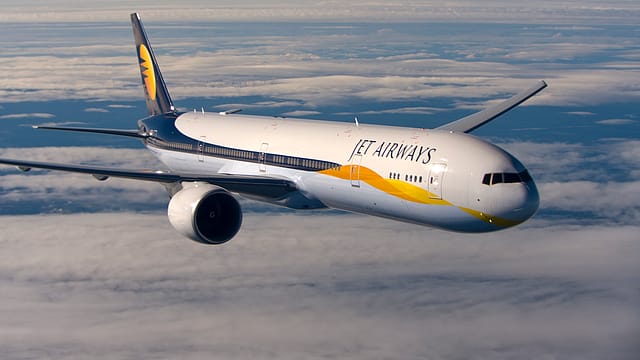Bring jet fuel under GST: Indian airlines tell govt
ADVERTISEMENT

In a bid to bring operational costs down, the airline industry has urged the government to include jet fuel under the Goods and Services Tax (GST). The aviation industry says it has been bearing the brunt of a high tax structure and weaker exchange rates for some time now.
“For our industry to take off, we need to ensure that the cost of our industry is lower or at least at par with our global counterpart. We cannot have the high cost of aviation fuel… we cannot have the high cost at the airports (airport taxes) and we definitely cannot have a bunch of indirect taxes being levied on the industry and then expect us to compete with international airlines,” Spicejet’s chairman and managing director Ajay Singh at the 11th International Conference cum Awards on Civil Aviation and Cargo held in New Delhi on Friday.
Singh added that the industry along with the government must work towards making India a global hub for international flights as well. “Bring the ATF (aviation turbine fuel) under GST to ensure that we get the proper input credit for all the indirect taxes that are imposed on us. We need to develop Delhi, Mumbai, Chennai, Bangalore, Hyderabad as global hubs. We need to come up with proper taxation structure, proper policies and proper business models that allow Indian carriers to operate profitably,” he noted.
January 2026
Netflix, which has been in India for a decade, has successfully struck a balance between high-class premium content and pricing that attracts a range of customers. Find out how the U.S. streaming giant evolved in India, plus an exclusive interview with CEO Ted Sarandos. Also read about the Best Investments for 2026, and how rising growth and easing inflation will come in handy for finance minister Nirmala Sitharaman as she prepares Budget 2026.
Singh explained that since air travel is perceived to be a rich man’s transportation, the sector is being heavily taxed. This has made Indian carriers weaker than their foreign counterpart thus allowing foreign players to penetrate the Indian skies and carry Indian travellers on long-haul routes, taking away a major share of the revenue pie.
Since July 31, 2017, the cost of jet fuel has surged by nearly 50%—a massive spike in the input costs for the scheduled operators. “Usually, the fuel cost comprises of 30% of the operating costs of the airline and in these times, it has gone up to 40%,” said Kamal Hingorani, senior vice-president and head of in-flight services for Spicejet.
The government said that it has looked into the suggestion and will work towards improving the sector’s precarious condition. Domestic carriers have been making a persistent demand for this and noted that their input costs will come down by Rs 3,000-5,000 crore if ATF is included in GST.
Fuel costs are making deep dents in the financials of fliers. Budget carrier IndiGo posted a decline of 96.6% in its net profit for the first quarter of FY19. Jet Airways, which deferred announcing its results for June quarter, is also reeling under the impact of fuel costs. “Key external factors that slowed down our momentum were weakening of the Indian rupee, with a consequent rise in fuel costs, industry’s inability to pass on increased costs to the consumer and no corresponding increase in ticket fares,” said Jet Airways chairman Naresh Goyal at the annual general meeting of the company held in Mumbai on Thursday.
